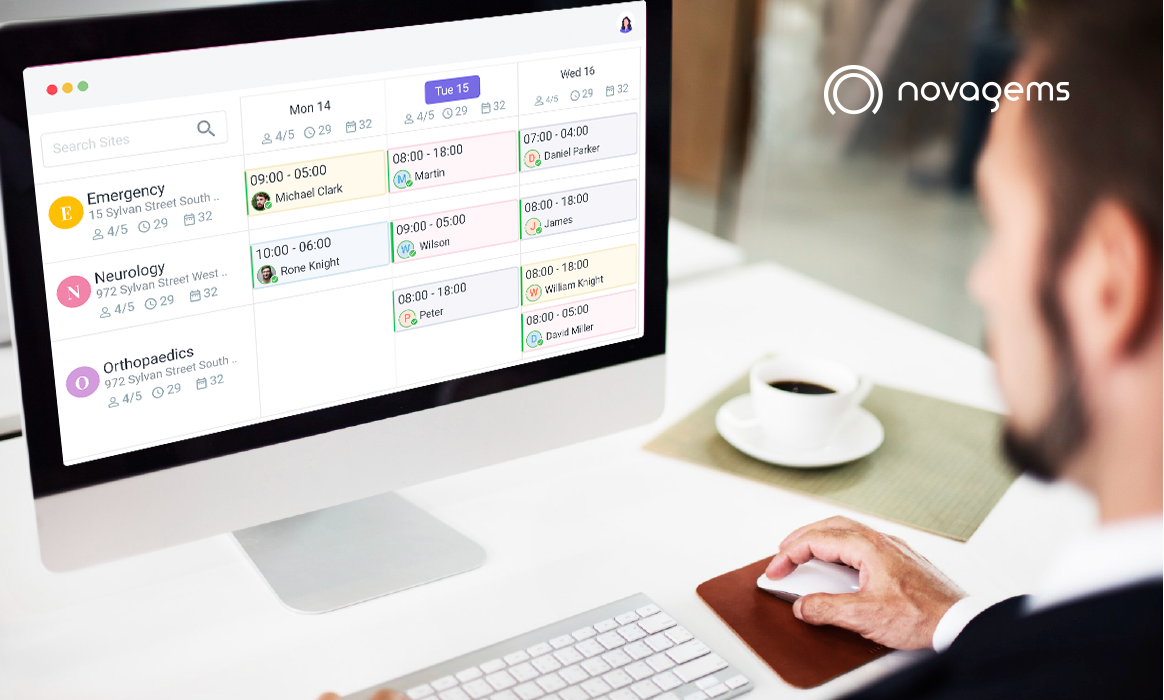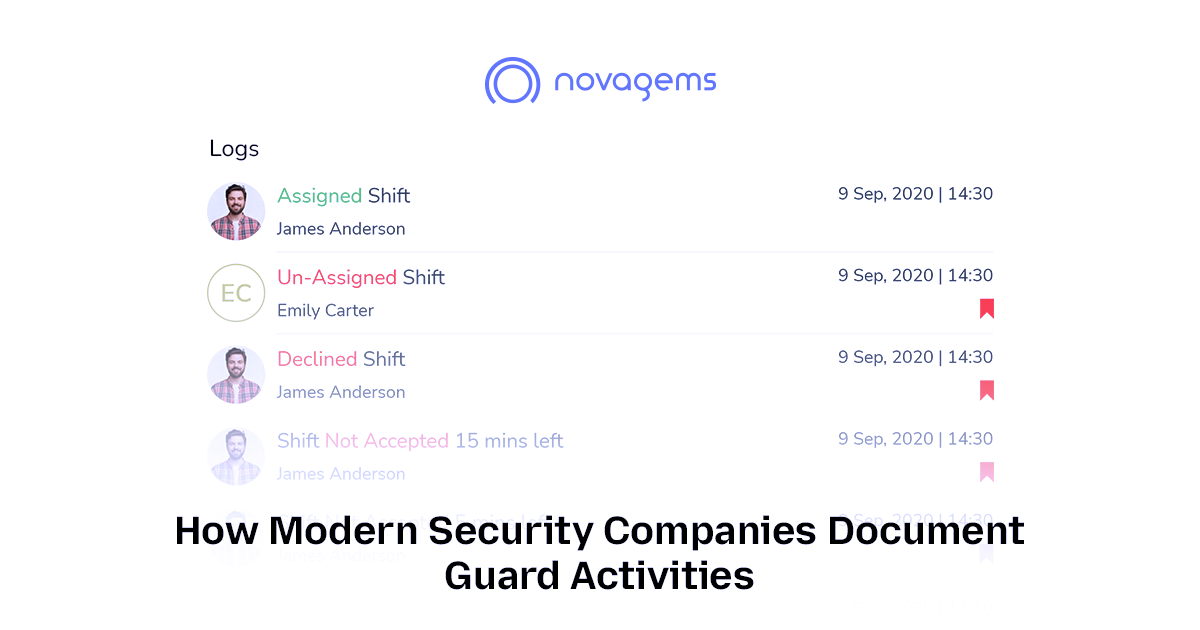Pros and Cons of Using GPS for Security Guard Tracking
Published on: Tue, Mar 18, 2025
Read in 7 minutes
Pros and Cons of Using GPS for Security Guard Tracking
In today’s world, security is an ongoing concern for businesses of all sizes. One of the most efficient ways to enhance the management and oversight of security operations is through the use of technology. In particular, GPS for security guard tracking has become increasingly popular. This system allows supervisors to monitor the exact location of security personnel during their patrols, ensuring that they are performing their duties properly and efficiently. However, like all technological solutions, it comes with its set of advantages and disadvantages.
In this blog, we will dive into the pros and cons of using GPS for security guard tracking, helping businesses understand how to make the most of this tool while being aware of its potential pitfalls.
What is GPS Technology?
GPS (Global Positioning System) is a satellite-based navigation system that uses a network of satellites orbiting the Earth to provide location and time information to GPS-enabled devices. It works by triangulating the signals received from multiple satellites, which allows the device to pinpoint its exact position on the Earth’s surface.
In the context of security, GPS technology is used to track the movements of security guards during their patrols. GPS-enabled devices, such as smartphones or dedicated tracking tools, can be worn by security personnel to provide real-time location updates. This tracking helps ensure that guards are completing their assigned routes and provides valuable data to supervisors to improve overall security management.
With this technology, security companies and businesses can be more proactive in ensuring the safety of their premises, as well as the efficiency of their security staff.
Advantages of Using a GPS Tracking System
There are numerous benefits to implementing a GPS tracking system for security guard management. Below are the most notable advantages:
1. Real-Time Monitoring
One of the biggest advantages of using a GPS system for security guard tracking is the ability to monitor security personnel in real time. Supervisors and managers can access the data and instantly see the exact location of each security guard. This helps in tracking whether guards are following their assigned routes and allows for immediate action if a guard strays from their designated patrol path.
Real-time monitoring is especially useful in large, complex facilities such as shopping malls, corporate buildings, or industrial areas, where it may be difficult to observe guards in person. With GPS tracking, managers can ensure that guards are consistently fulfilling their duties, preventing security breaches before they occur.
2. Increased Accountability
Accountability is crucial when it comes to security operations. A GPS tracking system helps ensure that security guards are completing their patrols as required, visiting all designated checkpoints, and following proper protocols. The system records data about each guard’s movements, including when they arrive at specific locations, how long they stay, and when they leave.
This data can be reviewed by supervisors to verify that all areas were checked, minimizing the risk of negligence or lapses in security. The use of GPS tracking for security guards promotes a higher level of responsibility, as guards are aware that their movements are being monitored.
3. Improved Efficiency
Another significant benefit of using GPS for guard tracking is the improvement of overall operational efficiency. Supervisors can optimize patrol routes and assign guards to the most effective paths based on the facility’s layout and current needs. By using GPS tracking systems, businesses can reduce unnecessary patrol times, saving both time and fuel costs.
Additionally, with real-time location data, managers can ensure that security guards aren’t duplicating efforts, missing important checkpoints, or wasting time traveling to distant areas unnecessarily. This level of coordination leads to better resource allocation and more efficient use of security personnel.
4. Better Incident Response
When an emergency occurs, the ability to respond quickly is critical. GPS tracking systems allow supervisors to locate the nearest guard to the scene of an incident, enabling a faster response. This is particularly important in situations such as an alarm trigger, unauthorized access, or other security breaches.
In addition to faster reaction times, GPS tracking can also provide valuable data for incident analysis. Supervisors can review a guard’s location history and see how long it took them to arrive at the scene, helping to improve future response protocols.

5. Data Collection and Reporting
GPS tracking systems also provide valuable data that can be used for reporting and performance analysis. The system records detailed logs of guards’ movements, time spent at various locations, and their overall performance throughout their shifts. This data can be used to identify trends, highlight areas of improvement, and ensure that security protocols are being followed consistently.
Reports generated from the GPS tracking system can also be used for audits, performance evaluations, and even as evidence in legal matters if necessary. Additionally, the system can provide insights into guards’ behavior and help identify training needs or operational inefficiencies.
Disadvantages of Using a GPS Tracking System
While GPS tracking systems offer several advantages, there are also notable downsides to consider. Below are the most significant disadvantages of using GPS for security guard tracking:
1. Privacy Concerns
One of the most common criticisms of using GPS tracking for security guards is the potential violation of privacy. Security personnel may feel uncomfortable being constantly monitored, especially when the tracking extends beyond work hours. This could lead to negative feelings among staff, potentially affecting morale and trust.
To mitigate privacy concerns, it’s important to establish clear guidelines and communicate transparently with employees about how the system works and why it is being implemented. Businesses must strike a balance between monitoring security personnel for operational efficiency and respecting their privacy.
2. Dependence on Technology
Another drawback of GPS tracking systems is their reliance on technology. While these systems can be very accurate, they are not infallible. GPS signals can be blocked or disrupted by environmental factors such as large buildings, underground areas, or dense foliage. If the system experiences a signal failure, it could result in inaccurate tracking or a complete loss of location data.
Additionally, if the GPS tracking system encounters a malfunction, it could lead to gaps in tracking data or an inability to monitor guards. This could undermine the effectiveness of the system and potentially compromise security.
3. Costs
Implementing a GPS tracking system requires an initial investment in both hardware and software. Businesses need to purchase GPS-enabled devices for each security guard and subscribe to software that can monitor and report on tracking data. These initial costs can be significant, especially for small businesses.
In addition to upfront costs, there are also ongoing maintenance, subscription, and operational expenses. These costs may not be feasible for smaller companies, and businesses need to weigh the benefits of GPS tracking against its cost-effectiveness.
4. Battery Life and Maintenance
GPS tracking devices rely on battery power, and this can be a challenge for security guards working long shifts. If the battery runs out, the tracking system will fail, and the guard’s movements will no longer be recorded. To prevent this, security companies must ensure that devices are regularly charged or have backup power sources, which could add to operational complexity.
Additionally, maintaining and troubleshooting GPS devices can be time-consuming and costly. Malfunctioning devices may require repairs or replacements, adding to the maintenance burden for security teams.
5. Over-Reliance on Technology
Over-relying on GPS tracking systems could lead to complacency among supervisors and security managers. If the system provides all the necessary data, managers might become too focused on the numbers and forget the human aspects of security. Guards, for instance, may become overly dependent on the technology and stop using their own judgment and training to assess security risks.
It’s important that GPS tracking systems be viewed as a tool to support security operations, not replace human judgment and vigilance.
Conclusion
Using GPS for security guard tracking offers numerous benefits, including real-time monitoring, increased accountability, better efficiency, and faster response times in emergencies. However, there are also drawbacks, such as privacy concerns, technological limitations, and costs, which need to be carefully considered before implementation.
To make the most of GPS tracking, businesses should be transparent with their staff, address privacy concerns, and ensure that the system is used alongside comprehensive security training and protocols. By combining GPS technology with human oversight, organizations can improve the effectiveness and efficiency of their security operations while maintaining a high level of trust and accountability.
Get a Free Trial
Sign up For Newsletter
Latest Blog Posts
Get Started
Start being productive & grow your business
with Novagems





